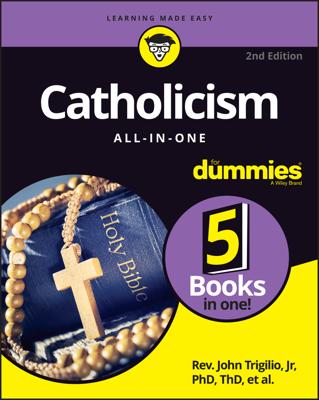John Paul II, like the popes before him, quoted the scripture, but he was second only to St. Peter himself in quoting the Bible. St. Peter was inspired to write an epistle of the New Testament. John Paul II began his pontificate with the biblical words "Be not afraid." These words are the same words spoken by
- God to Abraham in Genesis 46:3
- The Archangel Gabriel to the Virgin Mary in Luke 1:30
- The Archangel Gabriel to Zechariah (father of John the Baptist) in Luke 1:13
- The angels to the shepherds at Christmas in Luke 2:10
- Christ himself in Matthew 14:27, Mark 6:50, Luke 12:4, and John 6:20
Pope John Paul II's first papal encyclical Redemptor Hominis (1979), on the Redeemer of Man, has 75 percent of its footnotes from the Bible. Like St. Jerome, who translated the first Christian Bible into one language (Latin) and one volume in 400 AD, and who said "ignorance of the Scriptures is ignorance of Christ," Pope John Paul II not only peppered his papal speeches with and inserted into his myriad writings a slew of biblical quotes, he truly used the written Word of God as a starting point for discussion.
Whether in the Code of Canon Law in 1983, the Catechism of the Catholic Church in 1993, or any of John Paul II's numerous encyclicals, you'll find a good number of references to verses in the Bible. The pope was not shy or timid to show the world that Catholic Christians did in fact believe in the inspired, inerrant, and revealed Word of God and that much of Catholic theology is rooted in Sacred Scripture. Even when he added five new mysteries to the Holy Rosary, he pointed out that each one was found in the New Testament:
- Baptism of the Lord (Matthew 3:13–17)
- First Miracle of Jesus, the changing of water into wine at the wedding of Cana (John 2:1–11)
- Proclamation of the Kingdom of Heaven (Matthew 4:17–25 through Matthew 5:1–16)
- Transfiguration at Mount Tabor (Luke 9:28–36)
- Institution of the Holy Eucharist at the Last Supper (1 Corinthians 11:23–29)
John Paul II's final apostolic letter inaugurating the Year of the Eucharist is based on Luke 24:29 when the risen Jesus meets the two disciples on the road to Emmaus and they say to Him, "Stay with us Lord."
John Paul II used the Bible to teach and to inspire his followers to aspire, to seek the higher things of heaven. Catholicism regards Sacred Scripture and Sacred Tradition as two sides of the same coin, divine revelation. The revealed Word of God is both a written word (in the Bible) and an unwritten or spoken word (in Sacred Tradition). Both come from the same source, Jesus Christ, who himself is the fullness of revelation of the Father. Jesus is the Word made flesh who dwelt among us. John Paul II cherished the written word of scripture and quoted it heavily, not just as a footnote but as a divine message from God.

